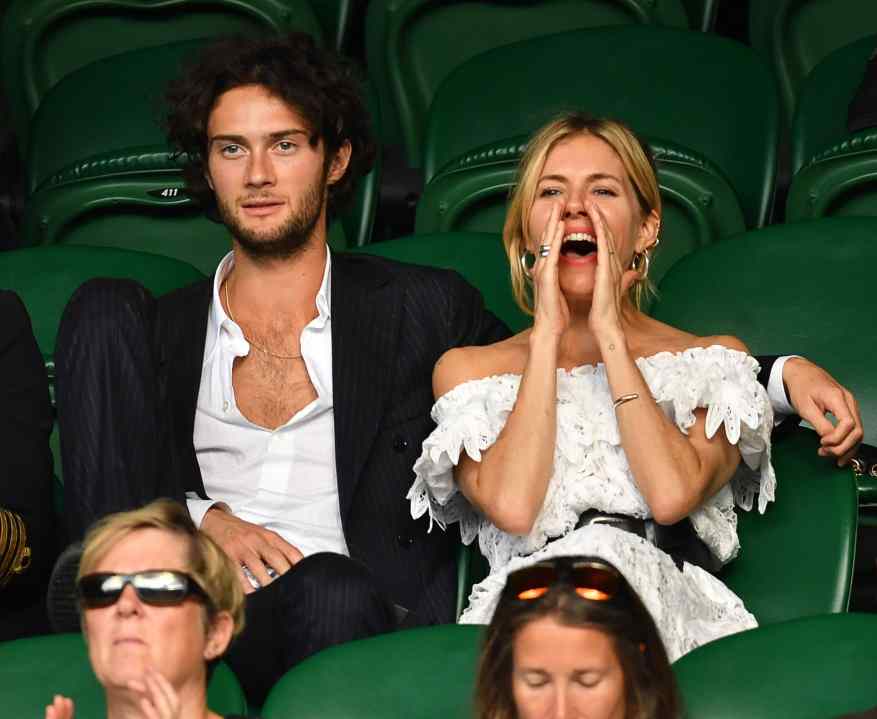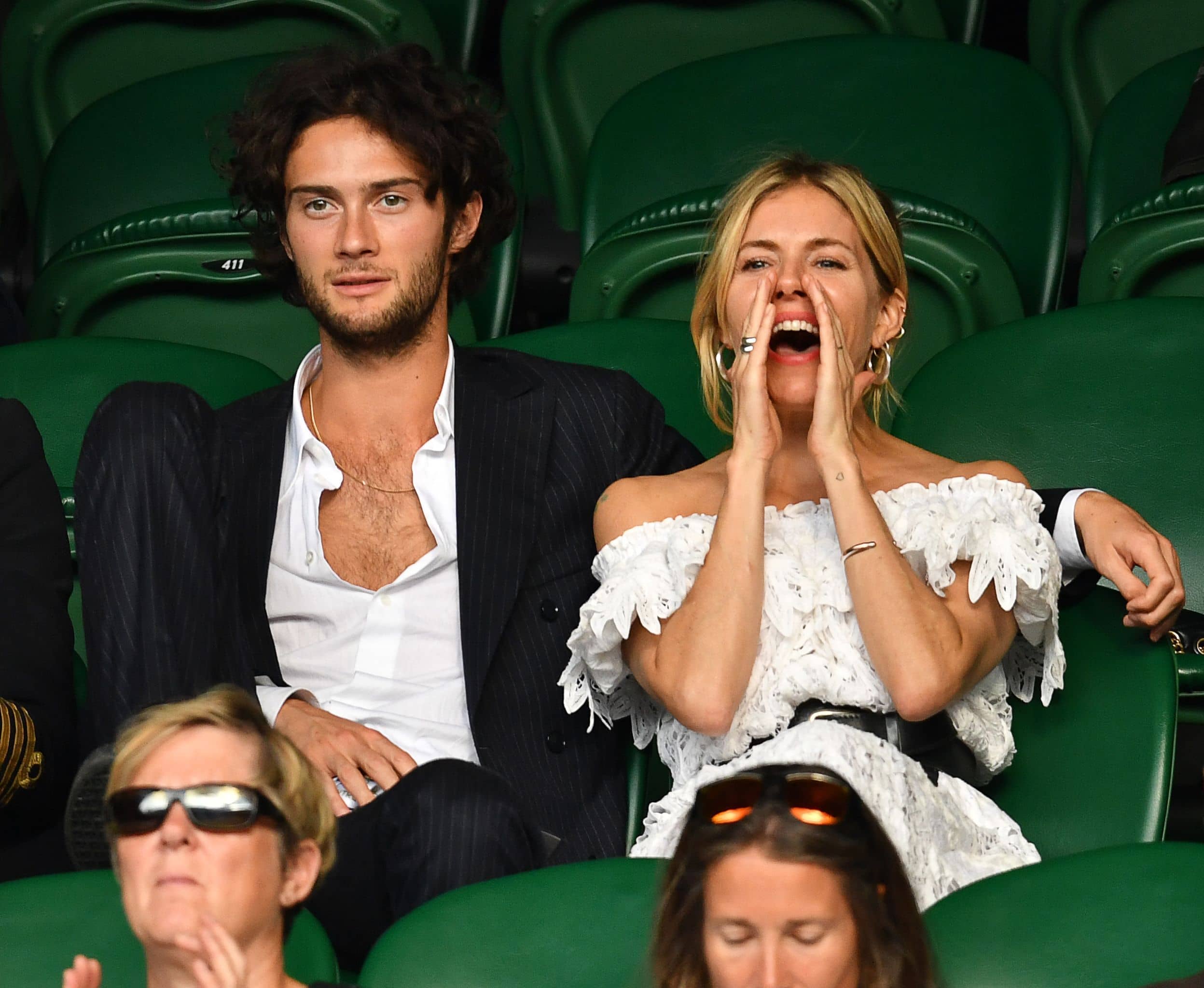Last week, pictures of the actress Sienna Miller frolicking with glee in a tiny orange bikini in St Tropez with her boyfriend were widely shared. Miller is 40, and her boyfriend, the Burberry model Oli Green, is 25. Miller was described as looking ‘incredible’, a mixture of fantastic abs and, it was implied, exuberance at her still-strong, possibly intensifying sexual power. Women at 40 are a fascinating breed, treading a line of dubious width between youngish and middle aged; between fertility and its winding down. In past centuries, women were lucky (or unlucky) to get to 40.
Now the ether resounds with rhetoric about how empowering it is, how the follies of youth have been left and in their place come the burnished glories of still-attractive maturity. There is a watered-down rhetoric for men of the same age, recently resurgent since Prince William hit it in June, which seems to toggle between joys of self-knowledge and family life, and wise acceptance of decreasing muscle mass and hair. In contrast, the woman hitting 40 is seen as sexually ascendant, (milfs are more popular than 20-somethings as a porn category), and can also expect to leap forward in self-confidence and clarity. The book Free at 40: Empowering Women Toward Financial Freedom is a clarion call to wives to throw off the financial shackles of bad or constricting marriages and start the rest of their lives now, while the online community Club 40 exists ‘because life after forty is no less fun or fashionable’.
Let us hope. For my recent experience of turning 40 was, well, harrowing. As I mentally tossed and turned through the day, the triumphalist narrative seemed to me to be pure denial.
My recent experience of turning 40 was, well, harrowing
I thought I’d wake up on the day and feel that sense of calm, and clarity – exactly the sort that society had whispered I might expect. That didn’t happen. In retrospect, it might have been better to drink a bottle of vodka first thing, and then to keep my head under the pillow all day, phone off.
Because, no matter what distractions came my way, I found myself musing dolefully on why 40 felt so ghastly. Part of it, of course, is that I am a woman, the gender on whom expectations weigh heaviest. Even in 2022, these norms, particularly around family, are incredibly tenacious, and I am the one woman in my extended circle for whom questions of fertility and partnership – indeed commitment – have not been resolved. In this context, 40 felt like a missed final deadline for something enormous.
Then there is the irreversibility of 40: the freedom to experiment and reinvent, taken as a matter of course in the previous two decades, narrows. One might not time to lay big plans now and the impact of decisions made earlier in life begin to sink in. For some, that’s the decision to shackle oneself to a family. For others, it’s the choice not to do that – to sacrifice the grounding, though arguably claustrophobic and restricting, pleasure of hearth and home – for the permanent freedom to disappear, break loose and start again. The reality of what you’ve invested in, or haven’t, starts to become manifest.
Then there’s the skin-crawling sense of bodily decline, the sense that death and destruction have suddenly jumped closer without any matching psychological readiness. There is an irony in the simultaneous advance of medical science and the apparent rise in people in their 40s getting seriously ill. The late cancer babes and hosts of the You, Me and the Big C podcast – Rachel Bland, who died at 40 of breast cancer, and Deborah James at 41 of bowel cancer – were remarkably courageous women who have done a lot of good. But thanks to these podcasts I’ve gained a newfound hypochondria and a lingering fear that 40 is not the new 30, it’s the new 65.
I met some friends for dinner, and on wishing me happy birthday and asking me how I was, I burst into tears, instantly repelling – like a cannonball hurled into a quite pond – all those in the vicinity, waiter included. The friends, though, who are quite accustomed to weepy episodes themselves, were unphased, and we were all soon laughing. Indeed, as dinner progressed, it became clear that we are all finding the environs of 40 weird. One of the group has three children, one has a rocky relationship but never wants a child, the other is in the grueling pincer of infertility. Everyone was confused, a bit ragged, trying to see a way through the murk.
And yet, as we stared at 40 head on, together, the evening took on a stark profundity. The mistake, it struck me, is to look to 40 for deliverance instead of reality. You are ageing. Life is more complicated. The impact of decisions made long ago do come home to roost. You do have less time to start from scratch. But when you lean into all that, and acknowledge it, you can find yourself having extraordinary conversations with your friends. Women in particular are good at converting confusion and anxiety into exchanges of deep intimacy with other women. Doing so is a good way to excise the clarity from the false horizons we’re otherwise given about this decade; or at least to start.







Comments